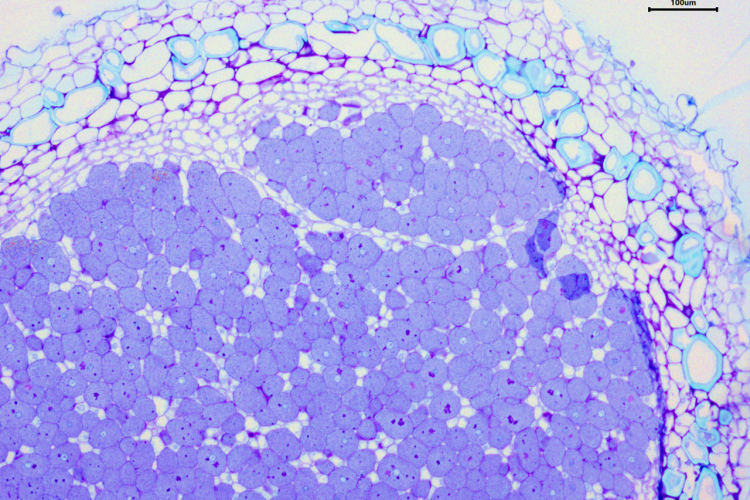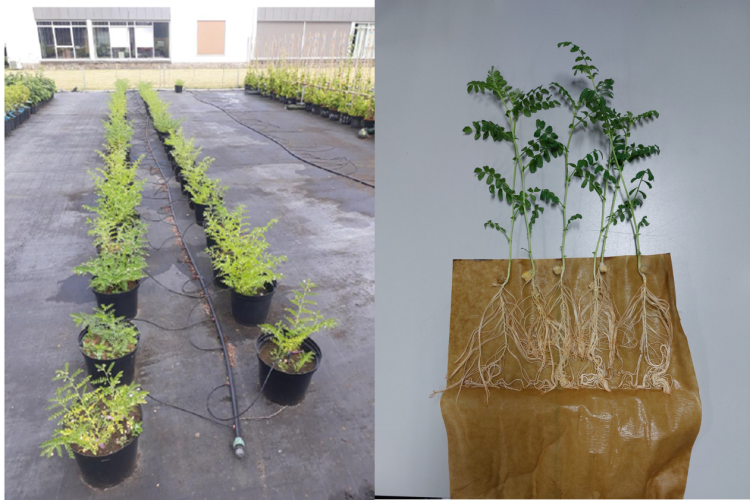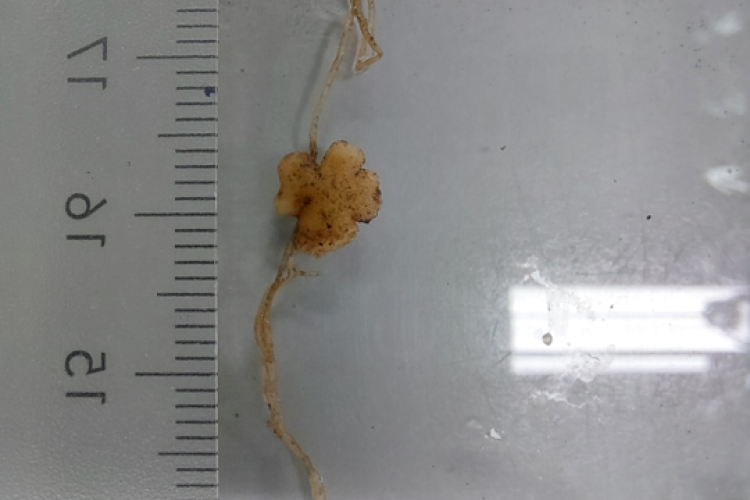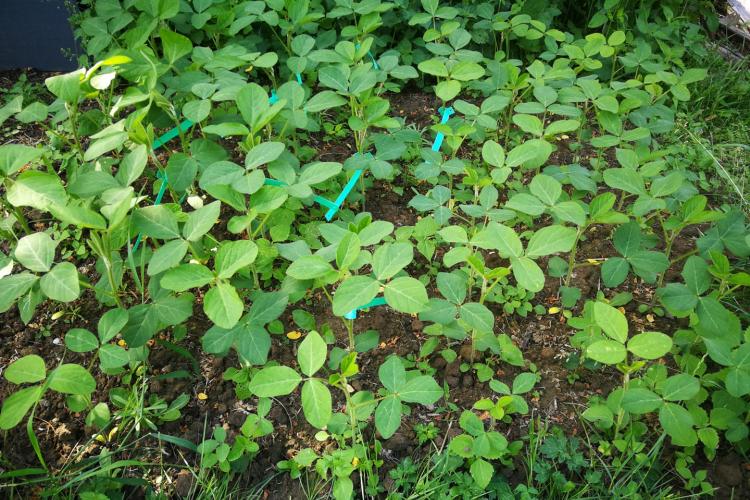Soybean (Glycine max) is one of the most economically important legumes worldwide. However, Europe strongly depends on soybean import from South American countries where soybean cultivation leads to environmental issues. To alleviate this dependency and develop socially responsible protein products, a shift towards local soybean production is imperative.
Soybean plants form a symbiotic interaction with nitrogen-fixing rhizobia bacteria within root nodules. There, nitrogen-fixing bacteria convert atmospheric nitrogen into plant-accessible forms in return for plant-derived carbohydrates. This symbiotic relationship allows legumes to serve as natural nitrogen fertilizers, enhancing crop yield while mitigating reliance on chemical fertilizers and reducing associated adverse environmental impacts.
Current commercial inoculants are not adapted to European environmental conditions, often resulting in suboptimal nitrogen fixation and lower protein content. Indigenous rhizobia bacteria may be better suited to nodulate soy grown in Europe. In 2021, we started the citizen-science isolation campaign ‘Soy in 1000 Gardens’, which aimed at discovering potent local nitrogen-fixing rhizobia. This effort yielded a diverse collection of Rhizobium, Bradyrhizobium, and Tardiphaga strains extracted from nitrogen-fixing nodules. However, only a few strains successfully nodulate soybean. The presence of non-fixing bacteria raises questions regarding their role as either symbiotic facilitators or cheaters.
We currently study soybean physiological responses to co-inoculation with diverse bacteria, monitor their colonization dynamics through fluorescent labelling, and analyse the structure of collected nodules. This project holds promise for enhancing the efficiency and sustainability of soybean production at northern latitudes.
Similarly to our soybean research, we are also looking for indigenous Mesorhizobium strains that can establish beneficial symbiotic partnerships with chickpea (Cicer arietinum), another economically important leguminous crop.




